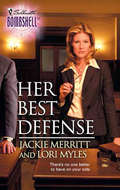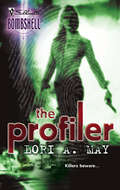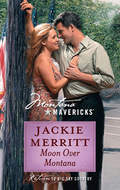Czytaj książkę: «Wed By A Will»
A sudden yearning leapt in her at the touch of the cowboy’s hand.
“I’m Matt Donahue,” he said. “Your closest neighbor. I was interested in buying this piece of land.”
“I’m not selling.” Corrie had already decided the place was hers. A place where her heart could be at home.
“You haven’t heard my offer,” he said mildly.
“Nor do I plan to.” She saw no reason to tell him the land wasn’t even really hers to sell, even if she wanted to. And maybe it never would be. How had she managed to overlook the fact that while her heart was saying forever to this little shack in the trees, a legal document said something else?
Husband required.
For a moment, having the h word in her mind at the same time that this big, handsome man with the strong, steady eyes filled her doorwell made her almost helpless with longing.…
Dear Reader,
September is here again, bringing the end of summer—but not the end of relaxing hours spent with a good book. This month Silhouette brings you six new Romance novels that will fill your leisure hours with pleasure. And don’t forget to see how Silhouette Books makes you a star!
First, Myrna Mackenzie continues the popular MAITLAND MATERNITY series with A Very Special Delivery, when Laura Maitland is swept off her feet on the way to the delivery room! Then we’re off to DESTINY, TEXAS, where, in This Kiss, a former plain Jane returns home to teach the class heartthrob a thing or two about chemistry. Don’t miss this second installment of Teresa Southwick’s exciting series. Next, in Cinderella After Midnight, the first of Lilian Darcy’s charming trilogy THE CINDERELLA CONSPIRACY, we go to a ball with “Lady Catrina”—who hasn’t bargained on a handsome millionaire seeing through her disguise.…
Whitney Bloom’s dreams come true in DeAnna Talcott’s Marrying for a Mom, when she marries the man she loves—even if only to keep custody of his daughter. In Wed by a Will, the conclusion of THE WEDDING LEGACY, reader favorite Cara Colter brings together a new family—and reunites us with other members. Then, a prim and proper businesswoman finds she wants a lot more from the carpenter who’s remodeling her house than watertight windows in Gail Martin’s delightful Her Secret Longing.
Be sure to return next month for Stella Bagwell’s conclusion to MAITLAND MATERNITY and the start of a brand-new continuity—HAVING THE BOSS’S BABY! Beloved author Judy Christenberry launches this wonderful series with When the Lights Went Out…Don’t miss any of next month’s wonderful tales.
Happy reading!

Mary-Theresa Hussey
Senior Editor
Wed by a Will
Cara Colter

MILLS & BOON
Before you start reading, why not sign up?
Thank you for downloading this Mills & Boon book. If you want to hear about exclusive discounts, special offers and competitions, sign up to our email newsletter today!
Or simply visit
Mills & Boon emails are completely free to receive and you can unsubscribe at any time via the link in any email we send you.
Books by Cara Colter
Silhouette Romance
Dare To Dream #491
Baby in Blue #1161
Husband in Red #1243
The Cowboy, the Baby and the Bride-To-Be #1319
Truly Daddy #1363
A Bride Worth Waiting For #1388
Weddings Do Come True #1406
A Babe in the Woods #1424
A Royal Marriage #1440
First Time, Forever #1464
*Husband by Inheritance #1532
*The Heiress Takes a Husband #1538
*Wed by a Will #1544
CARA COLTER
shares ten acres in the wild Kootenay region of British Columbia with the man of her dreams, three children, two horses, a cat with no tail and a golden retriever who answers best to “bad dog.” She loves reading, writing and the woods in winter (no bears). She says life’s delights include an automatic garage door opener and the skylight over the bed that allows her to see the stars at night.
She also says, “I have not lived a neat and tidy life, and used to envy those who did. Now I see my struggles as having given me a deep appreciation of life, and of love, that I hope I succeed in passing on through the stories that I tell.”
Contents
Prologue
Chapter One
Chapter Two
Chapter Three
Chapter Four
Chapter Five
Chapter Six
Chapter Seven
Chapter Eight
Chapter Nine
Chapter Ten
Epilogue
Prologue
February 15…
With a sensation of panic, Corrine Parsons realized how close she was to crying. Glancing at the two women she had never seen before, yet whose identical faces were the same as the one she saw every time she looked in the mirror, she fought the emotions that threatened to capsize her control.
Triplets. She was one of triplets.
It didn’t matter what the precise emotion she felt was, and she couldn’t identify it. Was it gladness or sadness? Shock or just plain fear?
No matter what the emotion, she knew the first rule. She knew it by heart. The first rule was never to cry. Never.
She’d learned that for the first time when she was six, and had gone into her first foster home because her aunt Ella was ill. Terrified and so alone, she had been so happy when she had found the puppy.
She had secretly hidden him under the porch, stealing scraps from the garbage to feed him. And she had loved him, nursed him, played with him.
Then she had been discovered. The rules: No puppies—never, ever no matter how much you cried and pleaded. The tears flowing freely then, as she tried to make her foster parents understand how much it meant to her.
The truth: no one cared.
A truth underscored over the years: as her hand cramped from writing out “Thou shalt not steal” when she had not stolen anything.
When a foster mother’s real daughter wore Corrine’s red jacket, without even asking. That jacket had been the only nice thing she owned. You should be glad to let her wear it, after all we’ve done for you.
From age six to seventeen, she’d been in foster care on and off many times. Seven different foster homes had taken Corrine Parsons’s tears and turned them to ice, cold hard ice that she saw in her eyes every time she looked at her own reflection in a mirror, even today, ten years after she had left her last foster home behind her.
Now, here she sat in a posh law office, with rich furnishings and thick carpets, surrounded by strangers, and the ice felt like the hot blue flame of a blowtorch was being aimed at it. Tears, hot and shaming, pressed behind her eyes. She had the terrifying feeling she might not be able to control whether they fell or not for very much longer.
And all because two of the strangers in this room looked exactly like her.
Were not strangers at all, though she had not met them before, at least not in her memory.
Sisters.
Mirror-image sisters. Triplets.
Back when she had still dreamed, as a lonely child—with her few clothes in a plastic garbage bag at the end of yet another unfamiliar bed, had she not dreamed of such things? Had she not lain awake in the darkness and tried to soothe her own fears with dreams?
There had been detailed dreams of an imaginary family: A Christmas tree with gifts piled high beneath, gifts with her name on them. A bed with no crinkly rubber protecting the mattress. Sheets that felt soft instead of scratchy, and smelled of a mother’s love. A strong, handsome father who threw back his head and laughed and picked up his little girl and swung her in the air. Sisters who shared Barbie dolls and hair ribbons and giggles and secrets.
Dreams…of someone to love her.
Corrie, she told herself firmly, as the tears pushed harder at the back of her eyes, these two women look like you, and they’re your sisters. But that doesn’t mean anything. It doesn’t mean they will love you, or care about you, as if blood could automatically guarantee those things.
Still, when she dared to glance at them, at Abby and Brittany, she could see something in their eyes when they looked back at her. It was as if they hadn’t even noticed she was not dressed appropriately. That she had purposely worn her oldest clothes in defiant answer to the summons that had arrived from the law office on creamy linen paper.
Her sisters’ eyes held tenderness.
Welcome.
She wanted so badly to believe. And was terrified to believe at the same time. Her faded jeans had a hole in the knee, and she worked the frayed threads with her fingers, trying desperately to keep control of her world.
Far away she could hear the lawyer’s voice going on and on. About a stranger giving them gifts. Huge gifts. Abby got a house. Brittany a business. Another man came in and went out again, but she hardly noticed.
She heard her own name. And her gift. Five acres of land. And a cabin. Her sisters looked naively happy, but she could feel herself bracing, waiting for the catch.
There was always a catch.
Sure enough, there it was. There were conditions attached to the gifts. If they wanted to keep them they had to stay here, in this little ocean-bound town she had never seen before, for one year.
And they had to get married within that year.
Married. Yeah, right. She, who had mastered the art of freezing a man where he stood with just one glance from her ice-cold eyes.
But if she came and lived here, even for that year, she could be with them. Her sisters.
See? It was happening already. She was nearly weak with wanting what she saw in their eyes.
What if she came, rearranged her whole life to be with them, and they didn’t like her?
The fear was so intense it was like falling off a cliff, falling and falling and falling.
But suddenly, she wasn’t falling anymore.
Her sister Abby slid her hand across the small space between their chairs, and intertwined their fingers. It was as if she knew the terror Corrie was feeling, and knew, too, how to make it go away.
Abby’s hand was warm and soft and strong. She squeezed, and when Corrie looked up at her, what she saw in her sister’s eyes made her realize she would be moving to Miracle Harbor, no matter how scared she was now. Not right away, of course. Corrie had obligations that had to be looked after first. But as soon as it was possible, she would come.
Frightened and excited at the very same time, Corrine admitted the hardest thing of all. That she was powerless to stay away from these gifts that had been offered to her…the hope and the tenderness she saw shining in her sisters’ eyes.
Chapter One
Three months later…
Hers.
Corrine shoved her hands in the back pockets of her jeans, and rocked back on her heels, studying the cabin. It stood, small and solid, under the spreading wings of a giant red maple.
Hers.
It didn’t matter to her that the porch sagged, that the shingles on the roof had grown a thick layer of moss, that the windows were grimy and needed to be cleaned. It didn’t matter to her that the second step was broken, or that the caulking was crumbling and rocks had fallen away from the top of the stone chimney.
She sighed, and allowed herself to feel a little finger of happiness. Nothing had ever really been hers before.
Of course she had owned clothing, and her beloved, if ancient Jeep that still had patches of its original green color in a few places.
But she had always rented an apartment in Minneapolis, even long after her moderate success with the Brandy picture book, Brandy being a young orphan girl of her creation who took on the world with spunk and fire and who always won.
Why hadn’t she bought a house?
Maybe because it would be tempting fate to believe in good things, to commit to anything at all beyond a deadline.
Even feeling so good about this ramshackle cabin concerned her.
Nothing in her history allowed her to believe good things lasted.
“Well,” she said out loud, and smiled, “according to sister Brit, this place doesn’t qualify as a good thing. Not even close.”
Brit had been appalled by the tiny cabin, the tumbledown barn, the falling-down fences that surrounded pastures gone wild, grass and weeds and wildflowers much higher than the fences.
“You can come live with me and Mitch,” Brit had announced shortly after Corrie had finally arrived.
“You’re newlyweds!” Corrie had said. Her sister had been married for only a week. She and her husband, Mitch, had hardly been able to keep their hands off each other long enough to say their vows. Corrie didn’t want to live with that—evidence, cold hard evidence, that dreams came true, that miracles happened all the time.
Both her sisters were evidence of that, judging by the happiness they had found since coming to Miracle Harbor. The thought made terror claw in Corrie’s throat.
Never cry, had just been the first rule. But the second rule was just as strong: Don’t hold hope. Having hope could be the most dangerous thing of all.
“We’ll come help you clean it up,” Abby had declared bravely, staring at the cobwebs inside the little cabin, her face a ghastly shade of pale.
Corrie had been amazed that her sisters shared her terror of spiders, felt that funny warm spot around her frozen heart threaten to expand.
So, of course, she had refused their offers of help. But not just because she could not stand to owe anyone anything, and not just because she felt vulnerable in the face of her sisters’ enthusiasm for her when they did not know the first thing about her.
Somehow cleaning the caulking was like claiming it. Making it hers in a way no one could take away from her. She took a deep breath, and glanced around.
There was work everywhere. The barn was practically falling down. The yard was nonexistent. Maybe she should start out here—
“Corrie,” she told herself, “get in there. Or else you’ll be sleeping outside tonight.” She debated whether there would be more spiders inside or out.
She took a deep breath, skipped over the broken step, and gave the door a shove. It squeaked open.
The interior of the cabin was simplicity itself. One large room served as both the kitchen and the living room. The kitchen had a single row of cupboards, badly in need of paint, and a countertop badly in need of new Arborite. The rust-stained sink was the old porcelain variety. The fridge and stove, thankfully, looked new and spotless.
A doorway off the kitchen, with no door, led to a bedroom that looked like it had been added to the cabin as an afterthought. The tiny bathroom, too, must have been added later, since the cabin looked to be eighty or ninety years old, and the bathroom was modern, bright and clean.
A black potbellied stove in the center of the large room acted as a divider between the kitchen and living room. On the other side was her living room, empty as yet. She liked its rough-hewn gray log walls, and the window, french-paned and huge. Once the window was cleaned she knew the light would be spectacular in this room. She would unpack her easel first, and put it right here where she could glance out the window at the wild grass and flowers, and the grove of trees and the leaning barn and know that everything she was looking at was hers.
A single beam of sunshine had found its way through the grime in the uncurtained front window, and it danced across the floor.
She went and stood in that sunbeam, scraped a layer of dust from the floor with the toe of her sneaker, and saw that the wood beneath was golden and warm.
Lost in thought, picturing bright yellow-checkered curtains at the windows, throw rugs on the floor, red tulips in a glass jar on the kitchen table, she did not hear him come in.
“Anybody here?”
She whirled around, gasping, some ingrained instinct spurring her to look for a weapon. Something to protect herself. Her mind raced back along the length of the long rutted driveway that led to her door. She was a long way from the nearest neighbor. No one would hear a cry for help.
There was nothing she could use to defend herself, and not even a coffee table to dart behind. A quick exit would do, she thought but then her mind started to kick in and she remembered. The movers. He had to be one of the movers. After all, she had been waiting for the movers to come with her meager scraps of furniture.
The light poured in the door behind him, and for a moment all she saw was his silhouette. She knew immediately he was not a furniture mover, yet her fear stayed at bay, and as she studied him she felt herself relax minutely.
Beige cowboy hat, white T-shirt, narrow-legged jeans on long, long legs, booted feet, broad, broad shoulders. Even without the hat, something would have whispered cowboy.
The confident angle of the chin, the solid plant of his feet, something in the way the muscle danced under the sunlight that glanced off the hair on his arms.
She didn’t know there were cowboys in Oregon. Of course, she didn’t really know very much about Oregon at all, except that the climate promised to be kinder than it was in Minnesota.
“I’m sorry, I didn’t mean to startle you.”
“You didn’t startle me,” she said, cool and defensive. But his voice had already penetrated those defenses. A deep voice, a sure voice. It only penetrated just enough for her to decide she was safe in this cabin, with a stranger who had appeared on soft feet, out of nowhere.
Her eyes adjusted to the light, and the details of him came clear to her. Brown eyes, steady, unwavering, calm and strong. A lot could be told from a man’s eyes. It was a survival skill she had perfected, another remnant from her childhood.
His cheekbones were pronounced, and his nose looked like it might have been straight once. Now the perfection of his looks was marred by the bump where the nose had been broken, but oddly the flaw made his appearance infinitely more appealing than pure perfection might. The crooked nose proclaimed him a man’s man, who lived in a man’s world, and paid the price for it. He probably accepted his lumps with no more than a casual shrug.
He had a beautiful mouth. Her artist’s eyes insisted on seeing that; the sensuous fullness of the lower lip, the firm curve of the upper one.
He took a step toward her, his hand extended, and she backed up.
He lowered his hand slowly, and regarded her, the eyes narrow now, assessing.
Rule Three: Never let them see your fear. It didn’t matter if she didn’t even know why she was scared, why her heart was pumping rabbit-swift, and why everything in her knew the scariest thing she could have done would have been to accept that extended hand.
She knew exactly what it would feel like.
It would be warm, dry, infinitely strong and leathertough. The touch of his hand would invite her to look into a world where people were not alone. Just a tantalizing glimpse, before he released his grip.
A sudden yearning leapt in her that she had to fight. A yearning that made an entirely different kind of fear breathe to life within her.
“What can I do for you?” she asked, her voice ice-cold, not a trace of any sort of emotion in it.
She knew he heard the coldness, though his reaction was barely discernible. A flicker in a muscle along the line of his jaw, a slight narrowing of his eyes that had the unfortunate effect of bringing the thick sooty abundance of his lashes to her attention.
“I’m Matt Donahue,” he said, just the faintest hint of ice adding a raw edge to the warm timber of his voice. “I’m your closest neighbor,” he nodded, “on that side.”
If he expected the welcome-neighbor routine, she hoped to disappoint him. She said nothing, waited, after a moment, folded her arms across her chest.
“I actually was interested in buying this piece of land. I heard someone had bought it before I even realized it had come up on the market.”
So he wasn’t exactly here as part of the welcome-neighbor routine, either. Surprise. Surprise.
“I’m not selling.” See? That was what attachment did. She’d only just got here, and already she had decided the place was hers. A place where her heart could be at home. She felt inordinately angry at him for making her see how fragile places for the heart really were.
“You haven’t even heard my offer,” he said mildly.
“Nor do I plan to.” She saw no reason to tell him she was in no position to sell, even had she wanted to. The land wasn’t even really hers to sell, yet. And maybe it never would be. How had her heart managed to overlook that little detail when she was planning throw rugs and curtains and bright red tulips?
That while her heart was saying forever to this little shack in the trees, the legal document said something else.
Husband required.
For a moment, having the H-word in her mind at the same time that this big, handsome man with the strong, steady eyes filled her doorwell made her almost helpless with longing.
Wishing that she could be a different person than she was. Softer and kinder, like her sister Abby or more outgoing and sexy like her sister Brit.
She felt her lack of warmth should have at least backed him out the door by now, but he stood, feet planted, regarding her thoughtfully, almost lazily. His eyes drifted casually to her bare ring finger, which gave her permission to take a swift, discreet glance at his.
His fingers were long and lean and ringless. Any kind of jewelry on them—even a wedding band—would have looked foolishly out of place in contrast to the masculine power of those hands.
She wished suddenly she was not in her oldest jeans, and a T-shirt with a rip under one armpit. She wished she had not been so quick to tell Brit to leave her hair alone when her sister had tried to style it. Still, she kept her face deliberately expressionless, and hated herself for the weakness of wishing.
His attention, thankfully, wavered from her before her discomfort made her blurt out something she was sure to regret. An overreaction like get the hell off my property.
He cocked his head a little, turned a shoulder, listened. “You expecting company?”
“The movers,” she said, suddenly hearing what he heard, the growl of a big truck coming down her rutted driveway.
“I expect they’re here, then. I’ll leave you to it—” he paused, leaving a blank where she could fill in her name, but she refused. She had no intention of appearing even remotely friendly to the handsome neighbor who had his eye on her land.
And, she realized, her lips.
Stunned by the pure masculine potency that burned briefly in his eyes when they flicked ever so briefly to her lips, she found herself wanting to sway toward him. Thankfully, he had tamed the heat in his gaze when he looked placidly back into her eyes.
She narrowed her eyes and glared at him.
He raised a hand to the brim of his hat, gave it a slow tip, and took a step backward onto the porch, turning away from her. “Your livestock appears to have arrived.”
Her what? She scurried over to the doorway. He was planted on the top step now, his eyes narrowed at the old muffler-free truck that was bouncing down her drive, a stock rack in the back.
“I don’t have any livestock.”
He looked over his shoulder at her. In the full light he was even more compelling than he had been in the dimness of the cabin. The sunlight made him appear bigger and stronger and more real.
Dark brown hair that curled at the tips slipped out from under his cowboy hat and touched the nape of his neck.
She could see his pulse beating in the curve of that strong neck. The white T-shirt molded the firm, hard lines of his chest and the broad sweep of his shoulders. Where the short sleeve of the shirt ended a rock-cut bicep began. The white of the shirt made the copper tone of his skin appear deeper. Her eyes wandered down the length of that arm, to the corded muscle of a powerful forearm, the squareness of a wrist twice the width of her own.
Embarrassed for looking, she forced her gaze back up to his eyes.
She could see they were more than brown; they were dark as new-turned earth, flecked with little spangles of gold.
And in the strong sunlight, she could see those eyes held a pain in them that could compete with any of her own.
The truck pulled up at the bottom of her stairs, a vehicle in a state of disrepair worse than her Jeep.
Her neighbor stepped over her broken step with the ease of a man who was used to putting his feet in all the right places, and went up to the window, which the driver rolled down.
“Corrie Parsons?” The driver looked grizzled, and dirty. There was a look in his eyes that she could recognize at ninety yards. Plain old garden variety meanness.
Donahue looked back at her for confirmation, and she nodded, not even sorry to give up her name to him after all. In fact she was glad suddenly that he was here. She got a familiar uneasy feeling from that man in the truck, with his stained teeth and squinty eyes and stubbled jowls.
With surprise she realized that Matt Donahue had either picked up on her split second of dislike, or harbored some of his own, because there was something almost protective in the way he turned back to the truck, and answered for her.
“This is the Parsons’s place.”
No one had ever protected her before, not even casually, and she did not like the way his small gesture threatened to soften something hard within her.
At that moment, a sound like Corrine had never heard reverberated through the air. It was like amplified fingernails across a blackboard crossed with the shrill howl of a saw blade shrieking through wood.
Matt Donahue didn’t jump back the way she did. Instead, he moved away from the vehicle door, swung himself up on the deck of the truck, and peered through the worn board slats of the stock rack.
“Yup,” the man said, opening his door and sliding out, “I’m Werner Grimes, delivering a prize-winning mammoth jack and he’s all yours.”
Matt Donahue jumped back down, shot a look over his shoulder at her that was distinctly grim.
“I thought you said you didn’t have any livestock,” Donahue said.
“I don’t! I don’t even know what a mammoth jack is. It sounds like something that’s been extinct for several million years crossed with a rabbit.”
“Ha-ha. That’s ’bout as good a description of him as I’ve ever heard,” Grimes said, going around to the back of his truck and lowering a ramp. “Mister, you want to give me a hand with this?”
“She says it’s not hers.”
“And this paper right here says it is, bought and paid for.”
While the men were at the back of the truck, arguing ownership, she crept down the stairs of the cabin and came around to the side of the truck. She couldn’t see anything. She climbed up on the deck, as she’d seen Matt do, only with less grace. She looked through the slats.
The saddest pair of brown eyes she had ever seen looked back at her from under bushy eyebrows. Long scruffy ears were turned toward the men, listening. For a moment it almost seemed like maybe it was some sort of prehistoric creature crossed with a rabbit.
“A donkey,” she whispered. She stuck her fingers through the slats and felt a soft, velvety nose touch her.
“Git your hand out of there!” the man shouted at her, and she jerked back so quickly she nearly fell off the wheel well. “Darned critter is meaner than a rattlesnake. He’ll take off your arm at the elbow.”
She stared at Grimes, aghast, and thought of the soft muzzle that had momentarily touched her fingers.
“Look, there’s obviously been a mistake,” her neighbor said.
“No mistake,” Grimes insisted. “Right name. Right address. Stand back. I’m going to open the gate.”
“She doesn’t want a jack. And neither do I. I’ve got a pasture of full-blooded quarter horse mares right next door, just foaling out, and I’ll be damned if I’m planning a crop of mules next year.”
“You better have a strong fence up then.” The man spat. “He’s hornier than—”
Donahue cut a look to her falling-down fences, and then interrupted Grimes before he had a chance to educate them about exactly how horny her donkey was.
Her donkey.
“How much to take him back wherever he came from?”
Her neighbor was reaching into his back pocket, taking out his wallet, which seemed to her to be a slightly autocratic thing for him to be doing, though it was a little late to decide she wanted control of the situation.
A certain whiney note appeared in the donkeydeliverer’s voice. “Geez. It took me near three hours to load the sum-bit—”
“Just name a price,” Donahue said coldly.
“Two hundred and fifty?”
“Get real.”
“Okay. One fifty then. Not a penny less.”
“I’ll give you fifty bucks to turn that truck around, with the donkey onboard.”
He was a mean donkey, Corrine reminded herself. He’d take her arm off at the elbow if she gave him the opportunity. And apparently he had an immense appetite for things other than grass. A mean, disgusting donkey.
Whose muzzle had felt like velvet against her fingers.
And whose eyes had been so unbearably sad.
“Wait,” she said, when she saw the money about to change hands. “Wait. I want him.”
Something pitiful flashed in the donkey man’s eyes as he saw his chance to make a quick fifty bucks disappearing.
Matt Donahue turned and looked at her. “You want who?”
Since only Donahue, Grimes and the donkey were in her yard, her answer was bound to be insulting. Yet it gave her great pleasure to say, “The donkey.”
Darmowy fragment się skończył.








